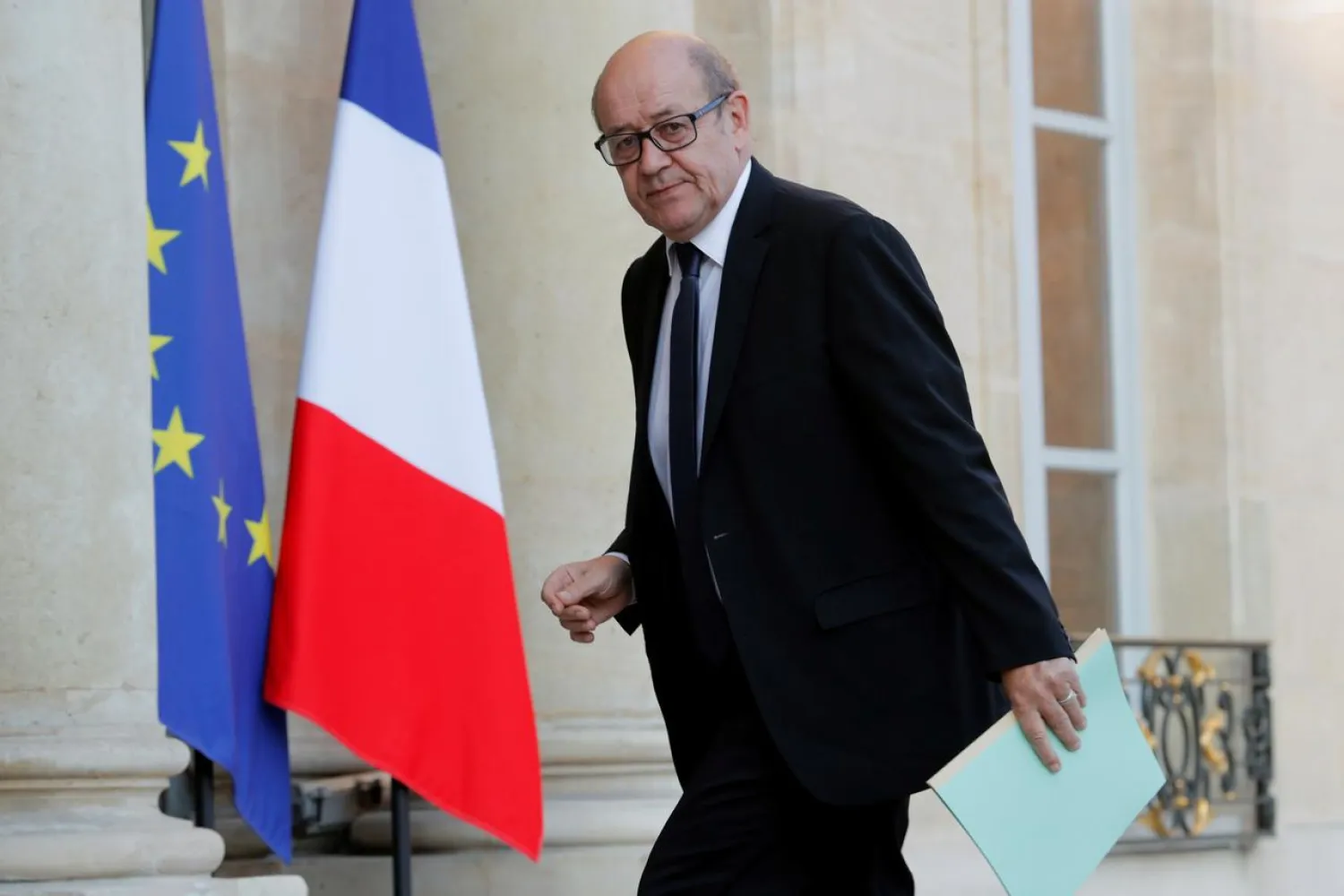French Foreign Minister Jean-Yves Le Drian announced that an international “legal mechanism” is being studied to prosecute foreign ISIS terrorists detained in Kurdish areas in Syria.
"The possibility of establishing a specific legal mechanism" that may be inspired by other examples of the international judicial system, as happened for Kosovo or the African continent, is being considered, Laudrian told Le Parisien newspaper.
In 2015, a special tribunal based in The Hague was established to investigate allegations of war crimes committed against Kosovo Albanian separatist rebels and Kosovo political opponents in 1998 and 1999.
In Africa, the International Criminal Tribunal for Rwanda (ICTR), established according to the United Nations Resolution in 1994, issued dozens of convictions until its closure in 2015.
In 2015, the Special Criminal Court was established to look into crimes against humanity and war crimes in Central Africa since 2003.
The French Minister rejected any comparison with the Nuremberg tribunal that prosecuted Nazi officials after 1945. “It's a historically heavy comparison,” he said.
The Syrian Democratic Forces (SDF) called for the establishment of an international tribunal in northeastern Syria for ISIS war criminals.
But the situation is legally complicated because the Kurdish region, where militants are being held, is not internationally recognized.
The French government is "ready" to repatriate French ISIS children after five “orphans” were returned to France in March.
France opposes the return of men and women who will be tried “wherever they commit their crimes,” according to the minister, who said he was only willing to study the files of children jailed with their mothers in camps on a case-by-case basis.
Paris's position is controversial, as families and their lawyers demand that children be given medical, social, and psychological treatment in France, the country of origin of their mothers.
The government originally intended to repatriate 163 of the 250 men, women and children imprisoned or detained in Kurdish-controlled camps before changing its position, according to internal documents published by the Liberation newspaper in April.









